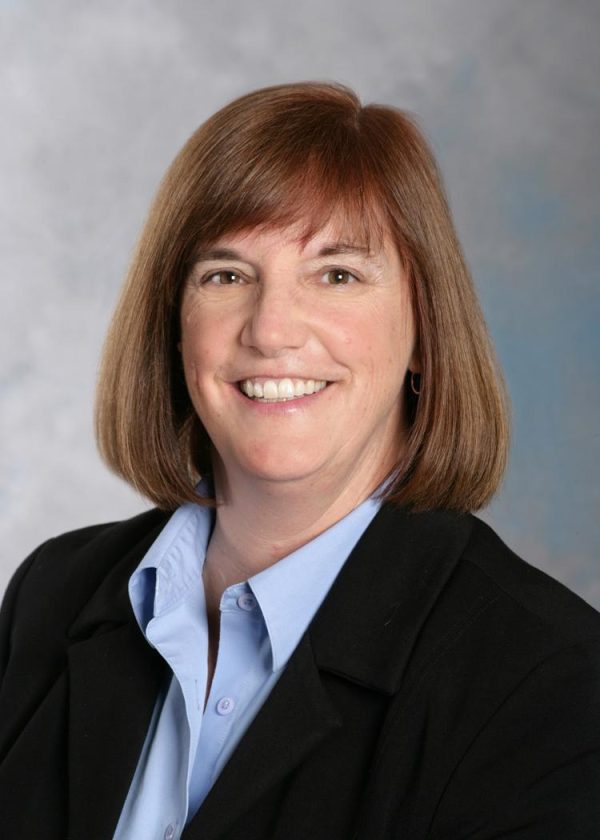Carol Goolsby

Q. What does your company do?
A. Duke Energy is the third largest electric power holding company in the United States, based on kilowatt-hour sales. Its regulated utility operations serve approximately 4 million customers located in five states – North Carolina, South Carolina, Indiana, Ohio and Kentucky — representing a population of approximately 11 million people. Duke Energy’s commercial power and international business segments operate diverse power generation assets in North America and Latin America, including a growing portfolio of renewable energy assets in the United States.
Q. What academic degrees do you hold?
A. B.S., Biology , Appalachian State University, 1978
B.S.M.E., University of North Carolina at Charlotte, 1986
Q. What is the purpose of the board of advisors?
A. The board’s purpose is to advise the Dean on strategic direction and programs for the college. It is a source of feedback from businesses and the local community on the effectiveness of the college and should be an agent for change for the college.
Q. What changes have you seen in the college and UNC Charlotte?
A. Large growth in both enrollment and graduation of students. Tremendous physical build out of the college and university. UNC Charlotte is now an urban university, with an engineering college that is the primary option for many high school students.
Q. What is exciting at the college?
A. The introduction of Ph.D. and more master’s programs is very exciting. This brings about new and exciting research potential. The future of EPIC is promising in an energy constrained world.
Q. What do you see in the future for the college?
A. More relevant research and programs that serve the Carolinas and the Southeast. EPIC and the Charlotte Research Institute will jumpstart new areas of research, plus provide more opportunities for the college to partner with businesses in the Carolinas.
Q. What are your thought about the football team?
A. Football is expensive, but will bring more name recognition to the public and future potential students. I do not think it will enhance the Lee College of Engineering, other than potentially bringing students to the university that otherwise may have gone somewhere else desiring a total student experience.
Your Engineering Career
Q. Why did you become an engineer?
A. I like figuring out how things work, but also how to get something accomplished in the most efficient way. There are always many ways to build something or many solutions to a problem – but engineering provides the most efficient ways to build or solve a problem.
Q. What skills have been important in your career?
A. The ability to make a decision based on incomplete data. As much as an engineer would love to have all the ‘facts’ and data analyzed before having to make a final decision, the real world is not black and white and typically does not allow enough time to try to get all the answers.
Q. What changes have you seen in the profession during your career?
A. Of course computing and the ease of access to information have drastically reduced time to analyze and communicate options or solutions for projects. The difficulty in problem solving is now in wading through all information available and pulling out what is most important to the issue rather than gathering the information.
Q. What is the most exciting project you ever worked on?
A. Building something is always fun. Strategizing, permitting, designing and building a new hydroelectric power plant has been the most challenging and rewarding engineering project in my career thus far.
Q. What do you like best about your job?
A. Being an operational executive, I most like collaborating with people to solve problems and improving how projects are accomplished. I work with a talented group of technical folks at Duke Energy, and also have the opportunity to work with state and federal agencies that are not as technically savvy. Getting the two on the same page is challenging, but rewarding.
Importance of Community Involvement
Q. What importance does your company place on community involvement?
A. Community involvement is extremely important in the regulated utility industry, so it is of utmost importance to Duke Energy. Duke Energy actively encourages employee involvement in community service projects by allowing employees paid time off for involvement in education (at all levels), hosting community events at Duke facilities, and through contributions to community needs via the Duke Foundation. These are just a few examples of involvement.
Q. What value does your company get from the college and from you being on the board?
A. Duke Energy has actively supported, and will continue to support, the Lee College of Engineering and the university. After all, the college is named after William States Lee, former president and chief engineer of Duke Power Company. My position on the board helps our company stay connected with the direction and needs of the college of engineering. I am able to keep a finger on the availability and strength of potential engineering hires for my company as well.
Q. What importance do you place on the giving back to the community?
A. As a professional engineer, I believe I have an obligation to keep public safety in mind. This belief rolls over into my placing a very high value on giving to the community. Engineers have the ability to truly make life better, and they should do so with their skills, time, and (eventually!) money.